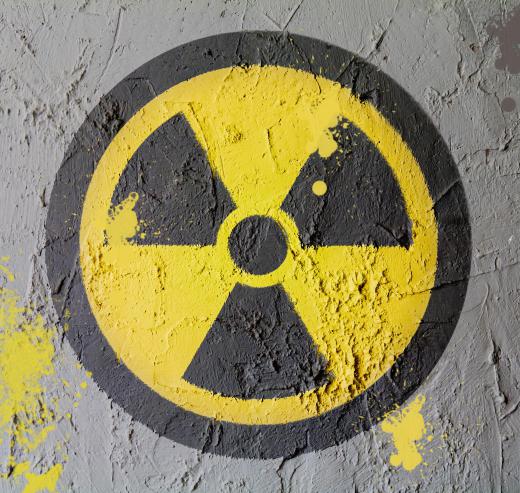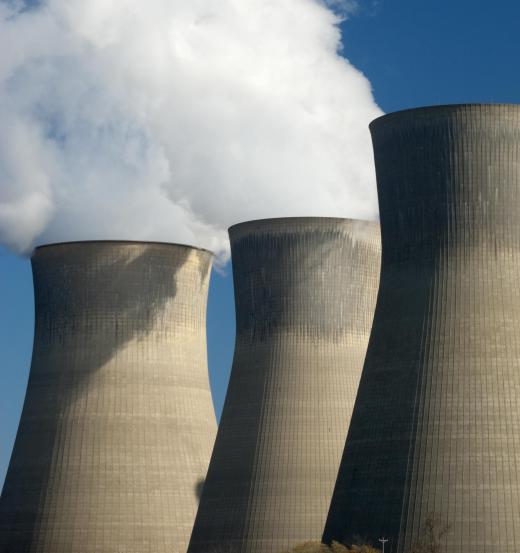Spent nuclear fuel is radioactive material that has been used as fuel in nuclear power plants. Once this material has been used for a significant amount of time, it loses its efficiency as fuel and must be replaced. Unfortunately, at this point it is radioactive waste, which can be deadly to humans and other creatures for thousands of years. Methods for disposing of spent nuclear fuel have often been controversial. Some scientists have proposed reprocessing the waste into useful fuel as an alternative to other disposal methods.
Nuclear power plants create electricity through controlled nuclear reactions. This involves the processing of highly radioactive materials such as uranium and plutonium. The amount of time this fuel remains useful varies, depending on the age of the reactor and its level of technology. As of 2011, most modern nuclear power facilities can employ fuel for three to six years before the material deteriorates to a point that it is no longer useful. After this point, the material is considered spent nuclear fuel.

According to the United States Department of Energy, U.S. nuclear plants create about 2,000 metric tons of spent nuclear fuel per year. The problem then becomes how to dispose of it. Most nuclear facilities place the fuel in nearby insulated tanks called spent fuel pools. The specially treated water in these tanks cools the material and absorbs most of the radiation emitted from the fuel. The material is often stored for 10 to 20 years in these pools.

After decades of usage, however, many of these tanks are almost full of spent nuclear fuel. The U.S. Nuclear Regulatory Commission estimates that many of them will be unusable after 2015. U.S. law requires the government to find permanent storage for the dangerous nuclear waste, but environmental concerns have prevented any such storage site from being built. In the meantime, the spent fuel is placed in concrete casks, but this method is also controversial for environmental and security reasons. Other nations with nuclear reactors are facing similar issues.

One solution already in use by countries such as France and Russia is to reprocess the spent nuclear fuel. As spent fuel remains radioactive, it can be used to further produce energy after reprocessing; less radioactive waste results from the reused fuel, although the process itself is expensive. These issues gained new relevance after the 2011 Japan earthquake and nuclear crisis caused many to re-examine nuclear power policy. There are also concerns that some countries could use spent nuclear fuel to create nuclear weapons. Nuclear power and radioactive waste have always been controversial issues, and the debate seems likely to continue in the future.
